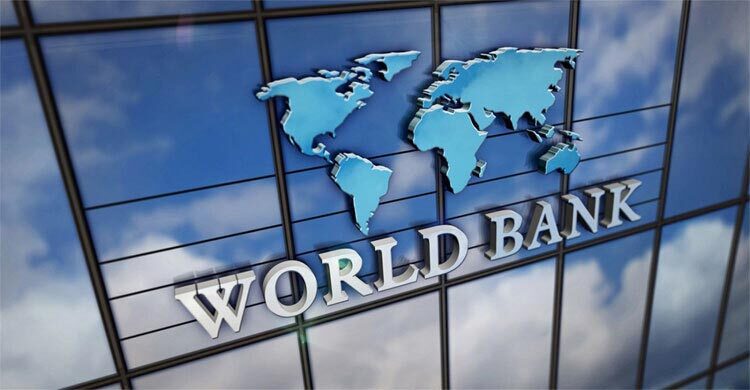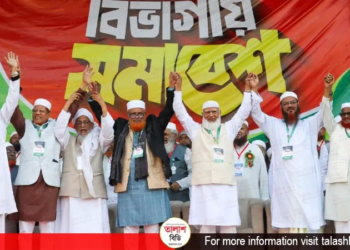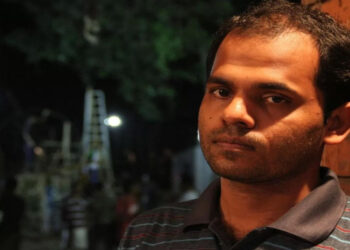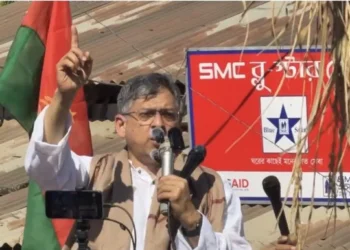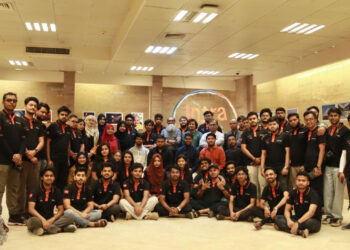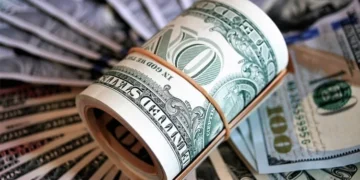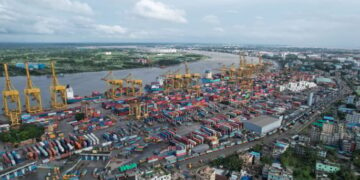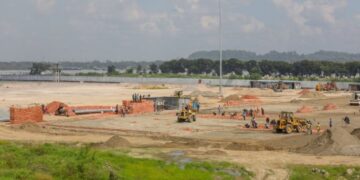For years, Bangladesh has proudly worn the badge of a rising economy, often cited as a development success story in South Asia. From bustling garment factories to a thriving remittance-driven rural economy, the country’s GDP had been growing at a strong pace. But now, that upward curve seems to be slowing down.
The growth forecast for most countries in the region has been revised down. In this context, increasing revenue collection is seen as a potential way to make the economy more resilient in the face of future risks, according to the World Bank.
According to the latest projections, Bangladesh’s GDP growth might drop to just 3.3 percent in the fiscal year 2024 to 2025. For a nation used to seeing GDP growth rates around 6 or 7 percent, this feels like a sudden pause in momentum. It’s more than a number. It reflects the worries and struggles that are gradually becoming part of everyday life.
According to the forecast, South Asia’s growth will slow to 5.8 percent in 2025, which is 0.4 percent lower than the forecast made last October. However, this is expected to rise again to 6.1 percent in 2026.
This information was shared in the ‘South Asia Development Update: Taxing Times’ report published on Wednesday, April 23.
Why This Slowdown Feels Personal
Behind every percentage point is a story. A worker who might not get hired next month. A business owner who’s unsure whether to expand or cut back. A student who dreams of a job after graduation but now faces more uncertainty. The projected GDP slowdown feels personal because it is. It touches lives. It touches families. It touches hope.
So, What is Really Causing the Decline in GDP?
Let’s break it down in a way that makes sense, not just for economists, but for all of us trying to make sense of what’s happening around us.
Investment is Falling Investors both local and foreign are holding back. Big projects are slowing down. Factory expansion plans are on hold. Entrepreneurs are more hesitant. And when money stops flowing into businesses, fewer jobs are created. As a result, GDP growth starts to shrink.
Political Instability is Creating Fear With political tensions rising in the country, protests and disruptions are affecting normal life. Businesses close early. Movement becomes risky. Many fear that unrest could damage the GDP even more. And that fear discourages growth, lowering GDP projections.
Internet Shutdowns are Hurting the New Economy Freelancers, online sellers, and small IT firms are all struggling during internet blackouts. These disruptions might seem temporary, but for many families that rely on daily earnings through online platforms, even a few hours without internet means lost income, which further affects the GDP.
Inflation is Stretching Every Taka Everything is more expensive from rice to oil to medicine. People are spending more just to live. And when you’re using up most of your income to survive, you can’t save or invest. This, in turn, slows down the GDP growth.
Read More: New Tariff of Gas Price Hike Could Scare Off Future Investment
Foreign Reserves are Dipping Bangladesh is spending more on imports and earning less from exports. Foreign reserves are getting tight. The value of the taka is dropping. This affects import costs and increases pressure on people and businesses, ultimately impacting GDP growth.
What Was Expected Versus What We’re Facing in Terms
Just a few months ago, things looked more hopeful. Experts predicted that the economy would grow by at least 5.7 percent. That didn’t seem unrealistic. But now, with the ground shifting under our feet, those numbers have been revised. What we hoped for feels like a far-off dream, replaced by uncertainty and concern.
What This Means for Ordinary People
You might not sit in boardrooms or study economic charts. But this slowdown could affect your life in simple but painful ways.
Jobs will be harder to find specially for young people. Many companies will cut back on hiring. Internships may vanish. Training opportunities could disappear. As a result, employment levels affect the overall growth of the country.
Everything might feel more expensive With inflation still high and incomes not rising fast enough, many families will have to cut back on food, transport, and education costs. This could reduce national GDP in the long run.
Government services may be reduced If tax collections fall due to low GDP growth, the government may struggle to fund schools, hospitals, and infrastructure projects, further exacerbating the economic situation.
Is There Any Hope Left for the GDP?
Yes. There’s always hope. Bangladesh has weathered storms before. It has bounced back from floods, pandemics, and financial shocks. What matters now is how we respond.
We Need Political Calm No economy can flourish in chaos. A peaceful political environment helps rebuild investor confidence, which can lead to higher GDP growth. It gives businesses the courage to plan again. It gives people the sense of security they desperately need.
Reforms Can Bring Confidence Back to the GDP From cutting red tape to improving how businesses are treated, reforms can make it easier to invest. And when investments rise, so do jobs, income, and GDP.
Focus on Strengths to Boost it The garment sector is still our crown jewel. ICT is growing. Our young population is full of energy and ideas. We need to focus on these areas, support them, and let them drive our GDP growth.
The Banking Sector Needs Repair to Protect GDP Banks must be made stronger and more trustworthy. Too many loans are not being repaid, and corruption is creating cracks in the system. Fixing these issues is crucial for long-term GDP improvement.
Help Those Who Need It Most In times like this, the government must expand social safety nets. Low-income families need food assistance, free healthcare, and cash support to survive until things improve. Without these measures, national GDP will continue to decline.
Bangladesh’s GDP Situation
The projected GDP growth of 3.3 percent is not just an economic forecast. It’s a reflection of the stress, uncertainty, and tension that many are feeling right now. But Bangladesh is not broken. Far from it. We are a country of hard workers and dreamers. A country that has risen from impossible odds before.
A nation that knows how to rebuild with heart and hustle. This slowdown is a moment to pause and rethink. To make smart choices. To stand together. Because when the economy slows down, we can either retreat in fear or rise with renewed purpose. And if Bangladesh has taught the world anything, it’s that we don’t give up.

